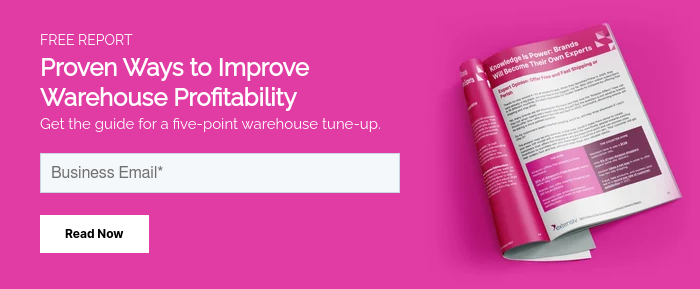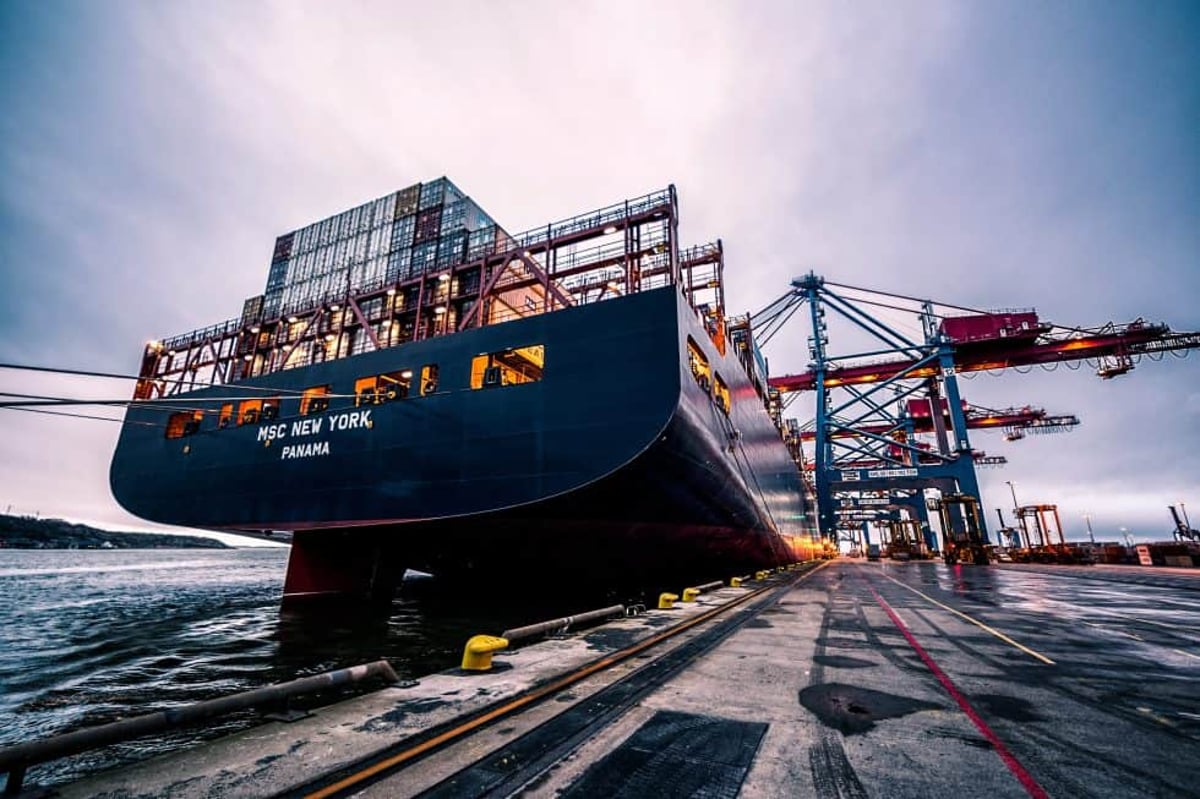Just when it seemed like bipartisanship was going the way of the dinosaurs, Congress recently came together to pass the Ocean Shipping Reform Act of 2022, which President Biden signed into law on June 16th. The legislation—designed to address unfair ocean carrier practices and regulate the costs of ocean shipping—was first introduced by Sens. Amy Klobuchar (D-Minn.) and John Thune (R-S.D.) in February 2022 and passed the House (369–42) and the Senate (unanimously!).
In an explicit and sharp rebuke rarely heard from politicians, President Biden addressed a handful of freight carriers, accusing them of exploiting their unfettered control of the market for personal gain. Touting their record profits, these carriers glossed over the fact that their “profits” are due to shipping prices that have increased as much as 1000 percent, a bitter pill to swallow for consumers already overburdened by inflation.
Calling these practices “outrageous,” Biden gave the stark warning to freight carriers that “the rip-off is over” and put pressure on Congress to crack down on them. No matter your party affiliation or political beliefs, no American wants to pointlessly hand over their hard-earned money to faceless conglomerates—unbridled greed is not only tone-deaf, it’s shameless. The Ocean Shipping Reform Act of 2022 is designed to mitigate these concerns, but how?
A Bit of History
The original Shipping Act, enacted in 1916, established the United States Shipping Board (USSB), the first federal agency tasked with regulating and overseeing commercial shipping in the United States. Since its inception, America’s lifeline to the global economy relied on international sea lanes and other nations’ vessel fleets to stay afloat; by 1914, U.S. merchant vessels only carried 10 percent of ocean trade.
WWI only exacerbated the downturn and disruption of trade between the U.S. and Europe. When Germany began to ruthlessly target European shipping routes, ships previously used for commercial trade were recalled and redirected to support the war effort, leading to an increased demand for U.S. exports to war-torn countries. Up until then, collective liner pricing organizations (conferences)— which America was not part of—had gained so much market power that they had the ability to unilaterally raise rates and reduce services.
As a result, the U.S. saw the imminent need for a watchdog agency to protect American interests in the international shipping industry and so enacted the Shipping Act of 1916, which granted the USSB (now the Federal Maritime Commission) the authority to protect American exporters (and American consumers of imported goods) from potential trade abuses and unfair costs by foreign governments.
In 1961, amendments were added to the 1916 Act that required ocean common carriers to file tariffs with the Federal Maritime Commission (FMC) and established a stipulation that rate increases could not be implemented without a 30-day notice. Over the years, the Shipping Act was refined multiple times to arm the FMC with the tools it needed for effective oversight and protection from unfair practices that could harm America and its interests.
In the last two years, port congestion and volatile fluctuations in freight costs brought about by the pandemic have left America struggling to import and export products within the global markets. Prior to the pandemic, the shipping rate for a 40-foot container was $1300; by September 2021, the rate had jumped nearly 750 percent to $11,000. And now higher diesel and oil prices threaten to drive up costs even more, forcing Congress to once again protect American business interests by adopting the Ocean Shipping Reform Act of 2022.
5 Immediate Impacts of the Ocean Shipping Reform Act of 2022
The protections afforded by this act are robust and will help the FMC address faulty practices and curb rising shipping costs. Among the many benefits the legislation offers, here are five ways the Act will immediately impact the industry.
1. Stops International Ocean Carriers from (Arbitrarily) Declining American Cargo
In the Fall of 2020, shipping carriers rejected American agricultural export containers (worth hundreds of millions of dollars) and instead routed the empty carriers to China to be loaded with Chinese exports, enraging an already frustrated industry. The revised “Concerted Action” code now includes many provisions that will make it unlawful for a conference to: “boycott or take any other concerted action resulting in an unreasonable refusal to deal” and prohibits them to "engage in any predatory practice designed to eliminate the participation, or deny the entry, in a particular trade of a common carrier not a member of the conference,” among other stipulations.
The Impact: The FMC is now authorized to initiate investigations of ocean carrier practices and when needed, to apply enforcement measures.
2. Prevents Demurrage and Detention Overcharges
The new Act also shifts the burden of proof regarding overcharging certain late fees (e.g., demurrage and detention), from the complainant to the international ocean carriers. Demurrage—costs incurred by a customer for using equipment outside of the given timeframe inside the terminal—occurs when containers are still full and have not cleared customs or been picked up. Detention costs are similar, but typically apply to equipment used outside of the terminal by the shipper or consignee, whether the container is full or empty.
The Impact: American businesses and consumers will be protected from unnecessary late fees and the FMC’s enforcement capabilities are increased.
3. Curbs Retaliation by International Shipping Companies
Both American importers and exporters have been subjected to retaliation by international shipping carriers and terminal operators for patronizing alternate carriers or filing complaints against the carrier. The revised Act formally establishes the FMC Office of Consumer Affairs and Dispute Resolution Services to streamline the process for investigating complaints from American businesses requesting assistance from the FMC.
The Impact: With improved authority, the FMC can ensure the maritime system is “transparent, efficient, and fair.”
4. Covers the Whole of American Interests—from Businesses to Consumers
The Act doesn’t just protect American importers and exporters; consumers will also enjoy the benefits of a regulated shipping industry. Worldwide lockdowns had seismic repercussions on consumer buying patterns. Confined to their homes for long stretches, Americans spent less money on services and more money on goods. According to Forbes, U.S. ecommerce sales rose to $870 billion in 2021, up 14.2 percent in 2020 and a staggering 50.5 percent increase from 2019. The Act will help America combat inflation by giving the FMC precision tools to protect consumers from price gouging by foreign carriers.
The Impact: According to Senator Klobuchar, “the new measures should prompt shippers to quickly lower costs,” hopefully providing some breathing room for Americans affected by higher inflation.
5. Supports Technological Innovations and Improves Chassis Management
Any brand that imports or exports goods worldwide knows how crucial the supply chain is in securing equipment for the movement of freight. The inability to procure intermodal equipment, including truck chassis, is but one more thorn in the side of businesses needing to ship their goods. The Act now explicitly prohibits ocean carriers from engaging in conduct that “unreasonably restricts the use of intermodal services or technological innovations.”
The Impact: To address equipment concerns head on, the legislation authorizes the Bureau of Transportation Statistics to collect data on dwell times for chassis and commissions a study to be conducted by the National Academy of Sciences into the best practices of chassis management.
Final Thoughts
As a brand focused on fulfilling goods for your customers, what does this mean for you? If the new Shipping Act proves effective, you could see marked improvements on landed costs for products manufactured overseas, as well as faster shipping times. If you are using Extensiv's family of branded software—like Extensiv Warehouse Manager or Extensiv Order Manager—this should become visible through the demand forecasting functions and time to receipt on inventory.
Does the new Shipping Act alleviate every problem facing the supply chain? Of course not. America’s ports are still underperforming by global standards and fulfillment is still slower than what the U.S. desires. But progress is progress, and though we don’t know what’s coming down the road, we can all agree that bipartisan legislation will inspire better innovations in the shipping industry that help consumers and businesses alike.
To learn more about how an WMS or OMS can provide greater inventory control, request a demo.







